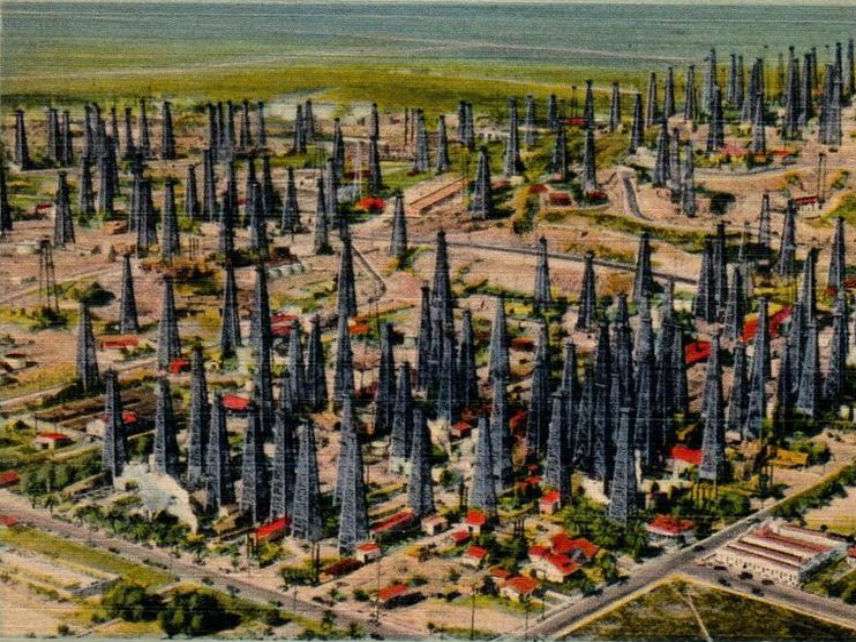U.S. Oil Production Will Exceed Its 1971 Peak This Year
So much for peak oil doom!

U.S. oil production will surge above its 1970 "peak" of 9.6 million barrels per day this year, according to the latest projections from the Energy Information Administration (EIA). The agency estimates that American oil production will average 10.6 million barrels per day this year and will rise to a daily average of 11.2 million barrels in 2019.
Only a decade ago, the world was in the grip of one of its periodic "peak oil" panics. Dire predictions everywhere announced that humanity was on the cusp of a disastrous and accelerating decline in oil production. One prominent analyst declared in 2009 that global oil production had peaked at 82 million barrels per day in 2008 and would thereafter begin declining at a rate of 2.2 million barrels per day. Reaching peak oil would result in a "meltdown of society" and a "dying civilization" with a "landscape littered with the rusting hulks of SUVs."
What happened?
Russia and the Organization of Petroleum Exporting Countries have been trying to boost prices by cutting back on production. Political chaos has engulfed several big oil producers—Iraq, Iran, Libya, South Sudan, Venezuela. The International Energy Agency (IEA) notes with understated charm that "declines are accelerating in Venezuela, which posted the world's biggest unplanned output fall in 2017." Yet the IEA expects global production to average about 98 million barrels per day this year.
Even in 2018, you can find die-hard peak oilers projecting doom. Just this week, J. David Hughes of the Post Carbon Institute questioned the EIA's projections. "There is no doubt that the U.S. can produce substantial amounts of shale gas and tight oil over the short- and medium-term," Hughes declared. "Unrealistic long-term forecasts, however, are a disservice to planning a viable long-term energy strategy. The very high to extremely optimistic EIA projections impart an unjustified level of comfort for long-term energy sustainability."
Keep in mind that Hughes flirted with peak oil predictions back in 2010, forecasting that global crude production would peak in 2012. He based this conclusion on a consensus estimate (excluding the "optimistic" views of EIA and Cambridge Energy Research Associates) of more than 20 predictions.
After my 2016 column "Where Have All the Peak Oilers Gone?" appeared, I received an anonymous email chastising me for daring to report on this subject. My interloctor wrote:
How can you say that peak oil is dead, when oil's sell price is one third of the price needed to sustain current production level? That's silly. Many oil companies are going broke, oil exporting countries will be broke soon. You just don't understand the subject. But when you don't understand it, you shouldn't write articles about it. Peak oil happened in 2015, instead of 2005-2007 probably only because of coal boom in China. But that coal boom has now ended. Before making a fool of yourself again, please get to know the subject first.
I replied: Well, I guess you told me! As the mirage of peak oil continues to recede, I await future emails from you confidently asserting that peak oil occurred in 2020, in 2025, in 2030, etc.
I just can't seem to help making a fool of myself on this subject.


Show Comments (59)